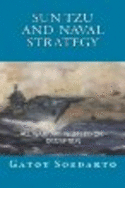In the summer of 1964 Fleet Admiral Chester Nimitz was enjoying his retirement and living in the San Francisco Bay area. He was asked to address a group of young naval cadets and fresh junior officers about their profession and their future. Nimitz had been connected to the sea almost since birth, his father had been a ship captain before moving to Texas to open a hotel, and his grandfather had raised him on stories of the sea. At age fifteen Chester took the Naval Academy entrance exam and passed.
He left high school before he graduated in order to enter Annapolis with the Class of 1905. In those days the entrance exam was the most important qualification for entry, not high school. The Academy was the only source of line officers for the Navy and Marine Corps, there was no ROTC or OCS. (Actually, Nimitz later helped established the NROTC unit at the University of California). When he was invited to speak it had been over sixty years since he entered the Academy, but he looked back across his many years in the service of his country and focused on three lessons for the junior officers.
It is once again commissioning season at the Academy and in ROTC units across the United States. These three lessons from the Fleet Admiral who commanded the war in the Pacific are just as valuable for our rising Ensigns and Second Lieutenants today as they were fifty years ago.
You are on the threshold of a great and honored profession – that of a naval officer. You will find among the naval officers of all countries a brotherhood of the sea which recognizes as a common enemy – the sea itself – and which has a primary duty of understanding that old enemy – the sea – in all its moods – in order to preserve the men, planes, and ships entrusted to them.*
Life at sea brings many challenges. Our history books are full of stories of combat and lessons from battle, but the sea is a danger in itself. It is something we rarely talk about in our training programs prior to commissioning, and the realization usually reaches us after we begin going to sea or taking to the air. As Joseph Conrad wrote, “the sea — this truth must be confessed — has no generosity. No display of manly qualities — courage, hardihood, endurance, faithfulness — has ever been known to touch its irresponsible consciousness of power.”
It’s also important to note Nimitz’s connection with the “brotherhood of the sea.” (I point this out in the most gender-neutral way possible, which is sometimes an issue when using historical sources.) The bond between Sailors and Marines of many nations around the world is a long and historic one. One of the things you’ll realize on your first deployment is that you have a great deal in common with not only our allies, but everyone at sea. Today the CNO talks about building partnerships around the world, but this isn’t new and it is something that can come naturally to Sailors and Marines, if you let it.
You will understand that for a nation to survive it must control the sea and air approaches to the homeland – and that this responsibility will fall primarily on the shoulders of its naval officers who will also have the duties of protecting interests far off shore.
Nimitz knew that understanding the role we play in our nation’s defense is important. To a nation like the United States, with limited borders and friends both north and south, seapower is central to national defense. As Alfred Thayer Mahan once wrote, “every danger of a military character to which the United States is exposed can be met best outside her own territory—at sea. Preparedness for naval war—preparedness against naval attack and for naval offence—is preparedness for anything that is likely to occur.”
But besides the defense of our country, Nimitz also alludes to work “far off shore.” For today’s new junior officers this is a reminder that for the Sea Services, as the wars of the first decades of the 21st century wind down, we probably won’t be “coming home” in the same way the other services might. We are needed “far off shore” in peacetime as much as we are when war arrives. You’ll be deploying and you’ll be operating all over the world and that means being away from family and friends in order to do your job.
You will learn that you are never finished with your efforts and studies to prepare yourselves for your duties of naval officers. This will continue – as long as you live. You will share with the brotherhood of officers of all nations an abhorrence of war but you must be prepared to confront force with force whenever the interests of your country requires such action. You will learn that bravery is not enough – and that you must do your utmost by professional study and reading of history to perfect your readiness to serve your country.
Admiral Nimitz was not the first to point out the vital importance of self-study and learning your profession. From William Sims and Alfred Thayer Mahan, to Carl Von Clausewitz and Napoleon, the idea that you must continuously be reading history and studying the world around you in order to be a professional military officer has a long pedigree. Nimitz wasn’t the first, nor was he the last. However, today it is something that we all must be reminded of.
You will likely be told that if you do your job today tomorrow will take care of itself. While this may be true from a careerist perspective, it is not true from a professional perspective. You must always be studying, reading, and learning in order to prepare yourself for your next set of orders or promotion. Not just NATOPS, or the standing orders, or other pubs (though you’ll need those too). Professional development comes from books about leadership, history, and strategy. If you wait for someone else to teach you what you need to know you may never learn it. You may be tempted to say, “well, I’ll wait until I go to the War College” or “I don’t have time for that, I’ll do it once I make Department Head.” That is the wrong attitude. There will never be time unless you make time. That is as true today as it will be twenty years into a career in the Navy or Marine Corps. You don’t need to enroll in a correspondence course or an online degree, just pick out a couple of good books to read every year.
The officers that Nimitz spoke to in 1964 were an interesting group. It wasn’t the latest class from Annapolis or the recent graduates of his University of California ROTC unit. No, he was addressing the junior officers and naval cadets of the Japanese Maritime Self-Defense Force’s Training Squadron. Commanded by Rear-Admiral Kazutoshi Kuhara, who had fought Nimitz’s task forces just two decades before, the four Japanese ships were on a training cruise across the Pacific. Many of the officers Nimitz addressed were small children when their nation was defeated under his command. His advice not only stands the test of time, but has well served a naval force that became one of our closest allies, and one of today’s most professional navies.
Fleet Admiral Nimitz was a great naval officer. He is remembered by most as the man who led the Navy in the Pacific during World War II, but he should be remembered for much more. He was the Ensign who commanded a gunboat off the Philippines, fighting alongside Marines and Army Soldiers in the counter-insurgency campaign during the Philippine Insurrection. He was the Lieutenant that revolutionized submarine tactics and was asked to lecture on it at the War College. He was the Lieutenant Commander that introduced the Navy to diesel engines and helped develop the procedures for the very first underway replenishment.
And maybe that’s the final lesson from Admiral Nimitz, you don’t become a war winning Admiral overnight. Follow his advice: face the challenges of the sea, understand the role you and your Navy and Marine Corps play in our national security, always keep studying history and your profession, and maybe some day one of the members of the Class of 2014 will be our next Fleet Admiral. As he said:
Remember that you have an important place in a highly honorable profession. I wish each of you success and happiness.
* Original copy of Nimitz’s remarks archived at Naval War College Historical Collections, Record Group 29. Digital copy available from the Nimitz Gray Book digitization project.













Tidak ada komentar:
Posting Komentar